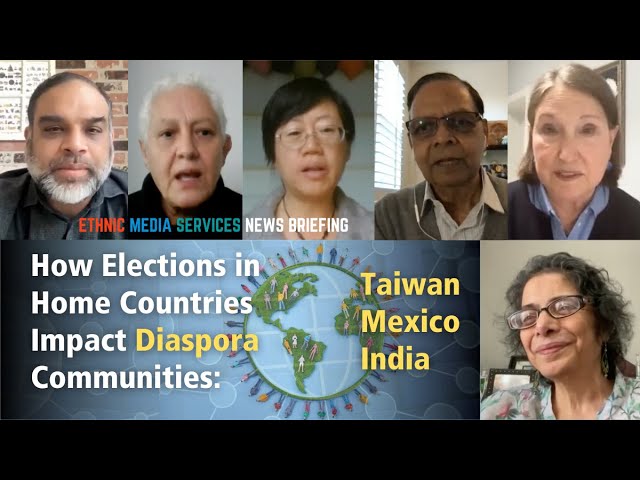Vidya Sethuraman
India Post News Service
Elections dominate the 2024 news curve and not just in the U.S. Taiwan, India and Mexico are among key countries with large diaspora populations in the US that are holding national elections. This week EMS explored how diaspora communities interact with elections in their home countries.
Speakers specifically looked at the immigrants from Mexico, India and Taiwan, as well as mainland China, and also highlighted the role of AI and social media in spreading disinformation across diaspora groups. National elections are scheduled or expected in at least 64 countries, as well as the European Union, which all together represent almost half the global population. The New York Times calls this one of the largest and most far-reaching democratic events in human memory.
Kathleen Newland, Senior Fellow and Co-Founder, Migration Policy Institute said that in 1980, only 21 countries allowed overseas citizens to vote. She said that almost three-quarters of the countries in the world allow their citizens abroad to vote. In the case of the United States, overseas voting is available, but people have to figure out for themselves how to register, and there is no promotion of voting.
Dr. Arvind Panagariya, Professor of Indian Political Economy, Columbia University there are 900 million voters in India, of whom between 600 million and 630 million will vote in the upcoming election in April or May. It will be carried out in six different phases to ensure safety for several weeks. Election officials and security forces will travel on foot, by land, by train, by boat, and sometimes by elephant; and boxes will be placed even in the forests.”
Rong Xiaoqing, veteran reporter, Sing Tao Daily (New York) said the result in Taiwan will not only affect Taiwan and China but also the United States, and probably the entire world.
Dr. Diana Alarcón González, Specialist on Mexico, former chief advisor and international affairs coordinator for Mayor Claudia Sheinbaum of Mexico City said, “We are living in a very important moment in Mexico. With their vote, Mexicans need to make a choice that will have consequences in the future: decide if they want to continue with the policies implemented in the last five years or return to the past of corruption and privileges”. She added we need better services and a better approach to the Mexican community that lives abroad. She estimated that 11 million Mexicans, who are first generation, live and work in the United States. Hence the importance of participation in elections because it can determine the electoral results in Mexico. She acknowledged that although Mexicans can vote from abroad, there are many restrictions to do so, since you must first have a voter ID card that is processed at the consulates, and when you already have it you must register to vote.
Dr. Rohit Chopra, Professor of Communication, College of Arts & Sciences, Santa Clara University said misinformation and fake news are not a new phenomenon but have historically been closely intertwined with the history of news itself. He commented that two influencing factors are the erosion of democracy worldwide, the increase in centralization of authority and power. Another factor is the general crisis in the media that precedes the growth of social networks, and which is accentuated in them.







